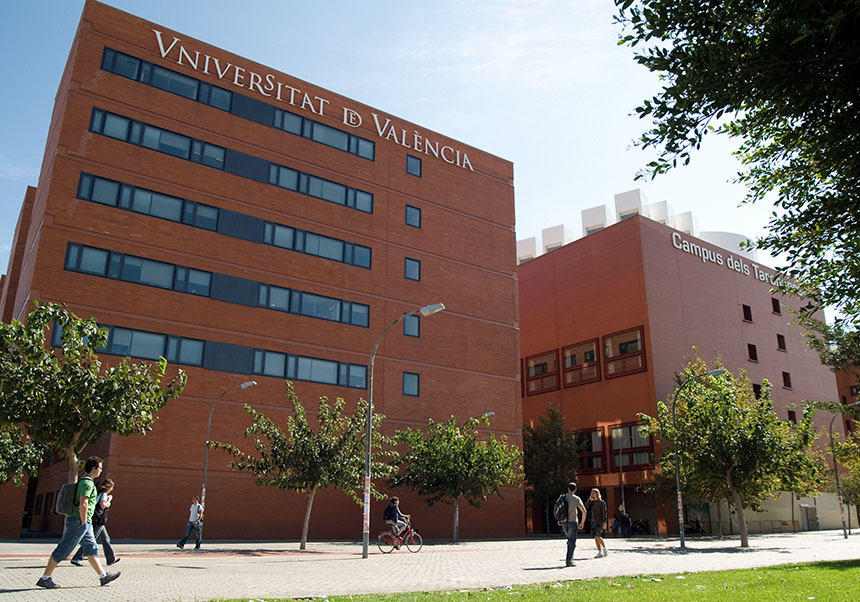Nearly 72% of recent graduates in Preschool Education spend the first few years preparing for competitive examinations to become a teacher
- UV General Foundation
- March 22nd, 2022
According to the latest Labour Market Entry Study of the Graduates of the Universitat de València, conducted by UVjob, 71.8% of recent graduates in the Degree in Preschool Education devotes the first years to prepare for competitive examinations for teaching, making it the degree with the highest percentage of graduates who study a competitive examination at the end of their studies.
This is the most common career opportunity for graduates of the Faculty of Teacher Training, who tend to work in the education and research sectors (around 60%), occupying positions such as preschool education teacher, social educator and monitor.
This fact has as a direct consequence a low insertion rate in the analyses carried out by the Universitat's employment service, which take place one and two years after completing their studies. During this period, it is evident that "graduates are engaged in preparing for competitive examinations to teaching, which is complemented by a part-time job, such as monitor", explained from the UVjob Department of Studies.
This situation is reflected in the data obtained on the indicators of first and current/last job, "where the majority had a part-time job and a temporary contract", the same sources point out.
Dámaris Sanchis Reig is a teacher in Preschool Education and works at the 'Gent Menuda' school of the València City Council. She graduated from the Universitat de València in Primary School and Preschool Education, did a postgraduate course in reading entertainment, and specialised in Experimental Sciences within the Master's Degree in Research in Specific Didactics, which has opened the way to a doctorate.
"Studying at the Faculty of Teacher Training has allowed me to be what I wanted to be, an preschool teacher, and to obtain training in all kinds of skills inside and outside the classroom. Now I am preparing for competitive examinations, but I also intend to finish my doctorate and have the opportunity to teach at the University". This and much more, she tells us in the new chapter of “Treballem. De la Universitat al món laboral”.
Birth rate: adjustments and mismatches
Another factor to take into account in the results of the UVjob insertion study "is the fall in the birth rate in Spain since 2008, in 2020 there were 35% fewer births than in 2008, for example, and the forecast of the National Statistics Institute (INE) is that, even if the number of births stabilises in the coming years, not even 20% of the number of births in 2008 will be recovered for at least 50 years".
Thus, the higher education system is faced with a blunt reality in which there are fewer people between the ages of 0 and 6, while the curricula continue to launch a wide offer in the degree that aims to educate these children. "There is a clear mismatch between supply and demand that is increasing over the years, therefore, universities have to start adjusting to this situation and make an offer in line with the demand of labour market", conclude the experts.
Another consequence of this imbalance is the downward trend in the quality employment indicator two years after graduation (i.e. the job offered requires university studies and is related to the degree). This trend is linked to the fall in the birth rate. Thus, in 2011 the value of this indicator was 62.3% and in 2021 it was 31%, i.e. it has fallen by 50% in 10 years.
In the case of the Universitat de València, in the current/last job, the quality employment of those surveyed one and two years after completing the degree was 34.3%, i.e. 24.2 points below the overall value of the UV, which is 58.5%.
The labour market is therefore crowded, and while the employment rate has increased by 15.2 points between 2016 and 2018, from 60.3% to 75.5%, it is also true that these are generally unskilled jobs.
More information:
File in: Grau , Estudis i anàlisis , UVemployement , Facultat de Magisteri , Fundació General UV , Estudis i anàlisis de la inserció , Inserció professional , Estudis















